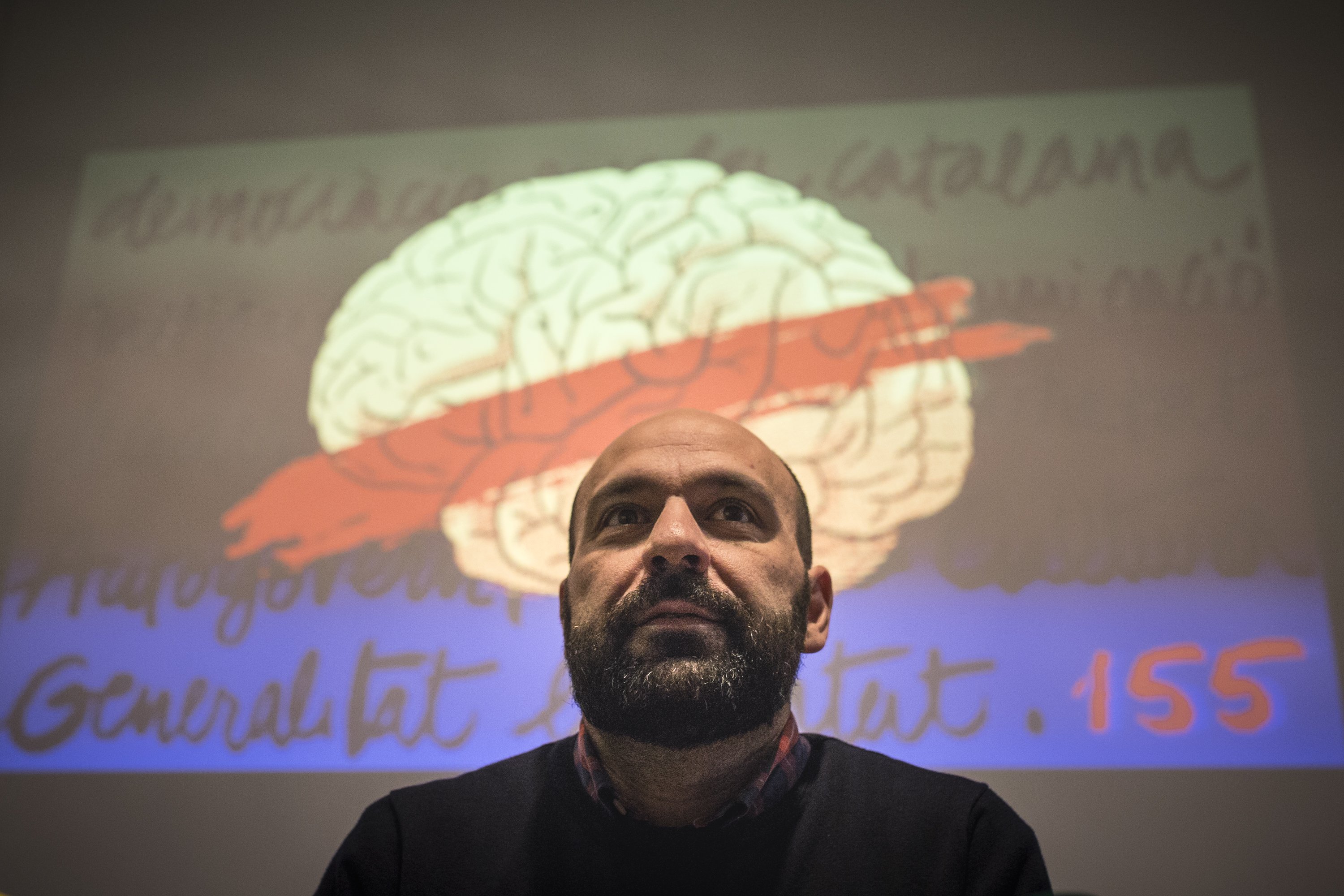The sudden application of article 155 of the Spanish Constitution hasn't just dismissed the Catalan government and dissolved the Parliament, but has also had real effects on day-to-day administration and the public. In a press conference this Thursday at the headquarters of Òmnium Cultural, entities and groups from different sectors explained how it has affected them directly. This comes a month after it came into effect, and two months after the economic intervention in the Catalan government. Some of the consequences: halted projects, delayed subsidies and uncertain budget.

For teaching union USTEC, spokesperson Ramon Font gave a specific example: on 30th October, three days after the approval of article 155, there was a meeting of the education sector between the ministers of all the autonomous communities. According to Font, Catalonia's vote, at that point in the hands of the Spanish ministry, was deciding on a question of civil service access tests in favour of the eight communities governed by PP (Popular Party). Another direct effect is that they had reached an agreement with the Catalan government to be reflected in the 2018 budget for 2,700 new teaching jobs. "The budget hasn't been approved because they dissolved the Parliament," he said.
He also denounced the attempt by PP and Ciudadanos (Citizens) to "recentralise" schools inspections, an exclusive power of the Catalan government. "We see an obsession with what they consider to be indoctrination, which is the development of the curriculum, which includes critical spirit, over the 1st October [referendum] too," he said. "One problem is that no one has told us when [article] 155 ends with a clear date."
Yolanda Hernández, president of ServidorsCat, a platform for public Catalan government workers, suggested that some of the consequences still haven't been seen, but will emerge in the months to come, when they want to assign resources to specific projects, after closing the budgets earlier. She also emphasised that there are bills, like the proposed law on equal treatment and non-discrimination which will not be able to be passed or published. International and trade word has also been suspended with the closing of the government offices abroad.

On the other hand, Hernández said, arguments over powers are removed: the Catalan government cannot appeal when the Spanish state steps into areas which should be of its exclusive jurisdiction. As an example, she gave the law of digital wishes, updating the regulations on last wills and testaments to cover a person's digital life, provisionally suspended by the Constitutional Court on 25th October. She denounced the suspension of cultural projects, like poetry festivals which will not take place, the termination of temporary roles and the dissolution of organisations, which have mean large-scale movements of staff within the administration.
The president of the Association of Professional Actors and Directors of Catalonia, Àlex Casanovas, highlighted the "uncertainty and insecurity" over the payment of subsidies. "Many projects have been suspended because we don't even have the old budgets continuing," he said. According to Casanovas, projects have fallen through because the people they were meant to hire through programs didn't know if they would receive their money. Circus and theatre shows have been cancelled because the producers didn't know if they would have resources. There has also been a "duplication of bureaucracy": they have to justify their subsidies to the Spanish state too.
"There's much anxiety: we're talking about money which the associations have paid expecting to be refunded", said Casanovas. "Once there is a new government, we ask them to withdraw article 155 as quickly as they put it in place," he said. "It's not only [article] 155, but also the intervention in the [Catalan government's] accounts by the state."

Representing LaFede.cat, a group of "organisations for global justice", Tono Albareda also commented on the uncertainty: 13 of its member entities had been waiting on over half a million euros (£441,000, $595,000) each until very recently. Similarly, 10 million euros for social organisations have only been released in the last few days. "In some cases only today," he said. Some of the NGOs work with immigrants, including health.
"These charities start work on 1st January, they start to spend at the start of the year, and it's worrying if in September or October they don't know if they will receive their money," said Albareda. He went on to say that the Spanish state is facing three crises: corruption, a social crisis and a territorial crisis. "They're hiding the other two with the territorial crisis, which they don't expect to solve soon," he criticised.
The vice-president of Òmnium, Marcel Mauri, noted that, beyond the "attack on the institutions and self-government", article 155 "has repercussions in every day life, even if there are those who insist on pretending that nothing's happening". He warned that, in the best scenario, it will be removed in three or four months time, "which has consequences that we're starting to feel now and we will [continue to] feel".

